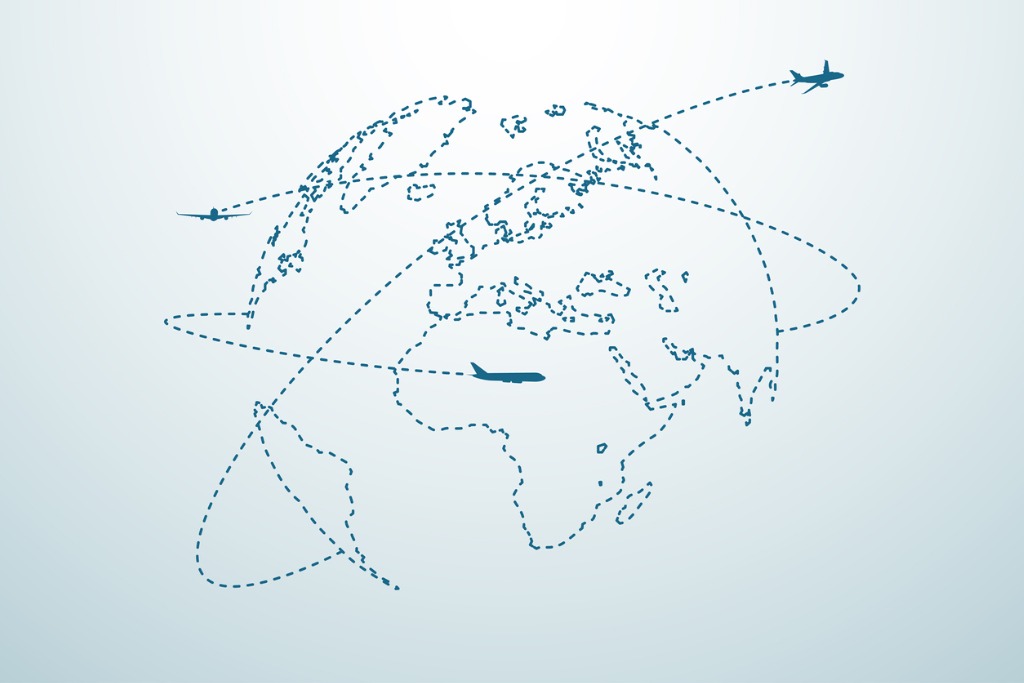Cooperation and coordination as a centerpiece to tackle the congestion in the European airspace
Klaus-Dieter Scheurle, CEO of DFS, shares his perspective on how his organisation is tackling the capacity challenge of 2019 in one of Europe’s busiest and densest airspaces.
The airspace in Europe has been busy again in the summer of 2019 as air traffic continues to grow. More than 37,000 flights were controlled on a single day across Europe on 28 June, more than ever before. And almost one third of these flights were led through German airspace. Because of its central location, it is one of the most densely operated regions in Europe.
That’s why DFS has also reached a new peak. In the first six months of this year, our air traffic controllers controlled over 1.6 million flights in the airspace over Germany – that is 1.3 percent, or about 21,000 flights more than in the same period last year.
While continuous traffic growth in 2018 led to congestion, the situation in Germany’s skies is now appreciably better than in the previous year. In an industry-wide initiative, airlines, airports and DFS have acted to tackle these inefficiencies. Airlines have streamlined their schedules and made available additional aircraft, airports have hired more ground personnel and created more space for security checks, and air traffic control has deployed more staff. Thus, the aviation stakeholders have tackled the very significant challenges of increased traffic this summer largely on their own. In addition, policy makers are planning changes to the regulatory framework to enable further improvements in the long term.
To ensure that all flights arrive at their destination without delay, the air navigation service providers in Europe have made their contribution. Having joined forces with the control centres in France, the Netherlands and the United Kingdom in 2018 to relocate traffic from heavily congested upper airspace to lower airspace, this initiative has been extended to almost all European air navigation service providers in 2019.
Under the coordination of the EU Network Manager, traffic in the summer months is now managed across borders in a way that avoids bottlenecks. This includes the lateral shifting of traffic flows to avoid congested sectors. Overall, the average delay per flight in European airspace dropped from 14.1 minutes in the first half of 2018 to 12 minutes in 2019. Just over one minute is lost per flight as a result of delays caused by European air navigation service providers, more than ten minutes are accrued for other reasons.
In addition to Europe-wide activities, DFS implemented numerous other measures in the run-up to the summer travel season to improve capacity in Germany. For example, the ‘fly as filed’ programme requires airlines to operate more closely aligned to their filed flight plans. Air traffic controllers now guide the pilots on the routes actually filed in the flight plan.
Significant relief has also been provided by a capacity and stabilisation pact negotiated with the social partner which creates incentives for air traffic controllers to take on voluntary additional shifts. The extra shifts are provided in particularly congested sectors where they dissolve bottlenecks and avoid delays. The extra shift scheme will only apply as long as it is needed. This will allow for more flexibility in the future to respond to traffic changes.
In addition, DFS has increased its training capacity for new air traffic controllers. By the end of 2019, 122 young people will have started their training at the DFS Academy. In 2020, the number of training places will be increased to 146.
The positive effect of these measures has already been apparent in the past summer months. In June, the delay caused by air traffic control in German airspace fell by a good 12 percent compared to the same month last year. In July in particular, punctuality improved significantly by around 40 percent. DFS also made progress in terms of route efficiency. In Germany, the deviation from the direct route was less than four kilometres per flight in the first half of 2019. That’s less than the length of the runways at Frankfurt Airport.
The most important task for DFS, however, is and remains safety. Our quality standards ensure that our guiding principle “Safety first”, which is absolutely crucial in aviation, is adhered to at all times.




